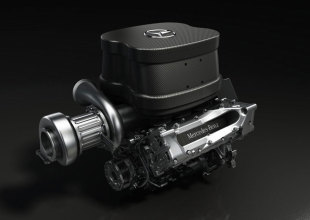

I have never understood racing people who say engine sound doesn't matter that much. For me, it is a vital part of the sensory overload that comes when you visit a race track; in fact, before you reach the entrance gate.
How many times have you parked and had your spirits soar at the distant sound of a racing engine being used as the maker intended? How often has your pace quickened when the scream or bellow of a competition engine urgently demands your presence at the trackside?
One of many occasions that stick in my memory occurred in the 1980s during a visit to the Long Beach Grand Prix. Someone suggested we F1 folk should take ourselves off for a night of sprint car racing at the Ascot Park speedway (now sadly demolished) to witness a round of the USAC Championship on the half-mile dirt oval.
These little front-engined monsters could extract more than 800 bhp from the methanol-fuelled V8s. When we arrived, the qualifying single-car run-offs were taking place. I'll never forget the ferocious noise coming out of the stadium to shatter the warm evening air. It was like some wild animal, barking furiously as the driver stabbed the throttle in urgent bursts while throwing the thing sideways. A truly guttural roar. I couldn't get in there quick enough.
Of course, the car - or bike - doesn't necessarily need to be on the move for engine sound to have its effect. I was reminded of that a few weeks ago when visiting the Goodwood Festival of Speed.
Taking in the wonderful atmosphere on the Friday, I found myself standing by the fence surrounding the collection area as the bikers idly waited a call to the start line. All the engines were shut off but the buzz of conversation was suddenly halted when a mechanic from the Honda Motor Company fired up an RC174, the machine responsible for the iconic sound of bike racing in the 1960s.
It was as if the little man in the white overalls had powered up an invisible human magnet as he twisted the throttle grip and gave the six-cylinder engine a hearing. People were drawn to the source of the ear-splitting sound and then stood there, staring, silly grins, saying nothing (not that speech was possible) and soaking up the sensation created by this jewel of engineering.
The four-stroke in-line 6 revved to 17,000rpm, which had a lot to do with the extraordinary assault on your eardrums. It's an interesting statistic because F1 engines are about to undergo a sea change in 2014 with the arrival of the turbo V6 set to a rev limit of 15,000 rpm. Even before a crankshaft had made a single revolution, naysayers were suggesting this would be the end of the F1 spectacle. No pun intended, but that's a load of hot air.
Mercedes AMG High Performance Powertrains have released a video of their V6 during a simulation lap of Monza. Even allowing for the fact that this has been recorded on the dyno (with the limitation of four flat walls and an exhaust note affected by the extraction of gases before they reach the Northamptonshire countryside), you can tell that this is going to be a pleasing sound. And I use the world 'pleasing' with the qualification that the current V8s, revving to 18,000rpm, are not easy listening after the first five minutes.
I actually heard the Mercedes on the dyno at Brixworth back in January. It immediately reminded me of the turbo era in the 1980s and a perfectly acceptable sound from the Renault and Ferrari V6s and the BMW 4-cylinder.
The 2014 unit will be a much more advanced proposition with its intricate electronics, single exhaust and the effect of a turbine extracting energy from the system. But the final sound reaching your ears will be enough to draw you to the fence.
At the end of the day - or, should I say, the beginning of the day - that's what matters.
Maurice Hamilton writes for ESPN F1.
© ESPN Sports Media Ltd.
 Maurice Hamilton writes for ESPN F1. A veteran journalist in the paddock, Maurice Hamilton has been part of the Formula One scene since 1977 and was the Observer's motor racing correspondent for 20 years. He has written several books as well as commentating on Formula One for BBC Radio 5 Live
Maurice Hamilton writes for ESPN F1. A veteran journalist in the paddock, Maurice Hamilton has been part of the Formula One scene since 1977 and was the Observer's motor racing correspondent for 20 years. He has written several books as well as commentating on Formula One for BBC Radio 5 Live
